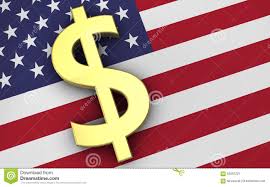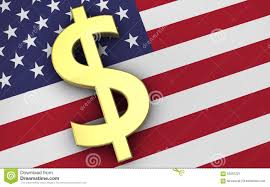
According to a majority of economists polled by Reuters, the United States has been brought forward to the next recession because of the recent escalation in the US-China trade war. The economists said they now expect that the US Federal Reserve would cut rates in September and another sometime next year.
An indicator of the bond market that is considered to be a gauge of US recession risk and is a closely watched number, indicated its highest level of warning since March 2007 on Monday, which highlighted the fears of a spillover of the trade war between the two largest economies of the world hastening the pace of a global downturn.
The situation was made worse last week after the US president Donald Trump announced a fresh 10 per cent tariff on Chinese goods worth $300 billion which is slated to be implemented from September 1. Further on Monday, the US officially identified China to be a currency manipulator
In response, China has said that the move would “severely damage international financial order and cause chaos in financial markets,” while also harming te chances of a recovery of the global economy.
The latest developments had brought the next U.S. recession closer, said nearly 70% of economists responding to an additional question in the survey.
“Certainly, escalating trade tensions through higher tariffs and restricted access to markets is hurting sentiment, increasing costs, damaging supply chains and weakening corporate profitability,” wrote James Knightley, chief international economist at ING. This then feeds through into consumer sentiment and spending more broadly in the economy with recession risks mounting.”
It is expected that there would not be any significant rise in the core PCE prices – the preferred gauge of inflation of the US Fed, economists anticipate a 25 basis point rate cut by it this September which would put the fed funds rate to 1.75-2.00%. Economists also expected to see another easing of rates late next year.
However, despite the expectations of the economists, it there is no clear indication from the Fed about another rate cut, let alone several. The latest reduction in rate was downplayed by Fed Chair Jerome Powell saying that it was “a mid-cycle adjustment to policy.”
“By cutting rates, the Fed is unintentionally underwriting the trade war,” said Aditya Bhave, senior global economist at Bank of America Merrill Lynch. “We worry about an adverse feedback loop in which the Fed eases and things get better: financial markets, the economy and so on. That encourages more escalation in the trade war - things get worse and then the Fed eases again.”
Almost three-quarters of respondents of the survey said yes when asked if the U.S. economy needs more rate cuts this year.
“The Fed is under the illusion that this is a mid-cycle adjustment, and that by delivering a few insurance cuts they can defer the recession,” said Philip Marey, senior U.S. strategist at Rabobank. “They don’t need to cut at the moment. But in their calculation they think if they do it now then they won’t have to later, and I think that will all be in vain.”
(Source:www.reuters.com)
An indicator of the bond market that is considered to be a gauge of US recession risk and is a closely watched number, indicated its highest level of warning since March 2007 on Monday, which highlighted the fears of a spillover of the trade war between the two largest economies of the world hastening the pace of a global downturn.
The situation was made worse last week after the US president Donald Trump announced a fresh 10 per cent tariff on Chinese goods worth $300 billion which is slated to be implemented from September 1. Further on Monday, the US officially identified China to be a currency manipulator
In response, China has said that the move would “severely damage international financial order and cause chaos in financial markets,” while also harming te chances of a recovery of the global economy.
The latest developments had brought the next U.S. recession closer, said nearly 70% of economists responding to an additional question in the survey.
“Certainly, escalating trade tensions through higher tariffs and restricted access to markets is hurting sentiment, increasing costs, damaging supply chains and weakening corporate profitability,” wrote James Knightley, chief international economist at ING. This then feeds through into consumer sentiment and spending more broadly in the economy with recession risks mounting.”
It is expected that there would not be any significant rise in the core PCE prices – the preferred gauge of inflation of the US Fed, economists anticipate a 25 basis point rate cut by it this September which would put the fed funds rate to 1.75-2.00%. Economists also expected to see another easing of rates late next year.
However, despite the expectations of the economists, it there is no clear indication from the Fed about another rate cut, let alone several. The latest reduction in rate was downplayed by Fed Chair Jerome Powell saying that it was “a mid-cycle adjustment to policy.”
“By cutting rates, the Fed is unintentionally underwriting the trade war,” said Aditya Bhave, senior global economist at Bank of America Merrill Lynch. “We worry about an adverse feedback loop in which the Fed eases and things get better: financial markets, the economy and so on. That encourages more escalation in the trade war - things get worse and then the Fed eases again.”
Almost three-quarters of respondents of the survey said yes when asked if the U.S. economy needs more rate cuts this year.
“The Fed is under the illusion that this is a mid-cycle adjustment, and that by delivering a few insurance cuts they can defer the recession,” said Philip Marey, senior U.S. strategist at Rabobank. “They don’t need to cut at the moment. But in their calculation they think if they do it now then they won’t have to later, and I think that will all be in vain.”
(Source:www.reuters.com)





